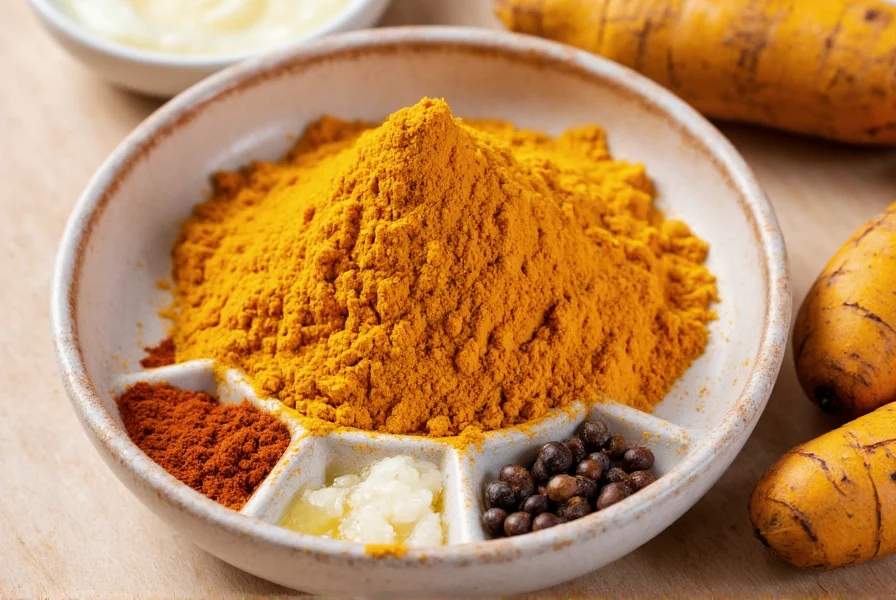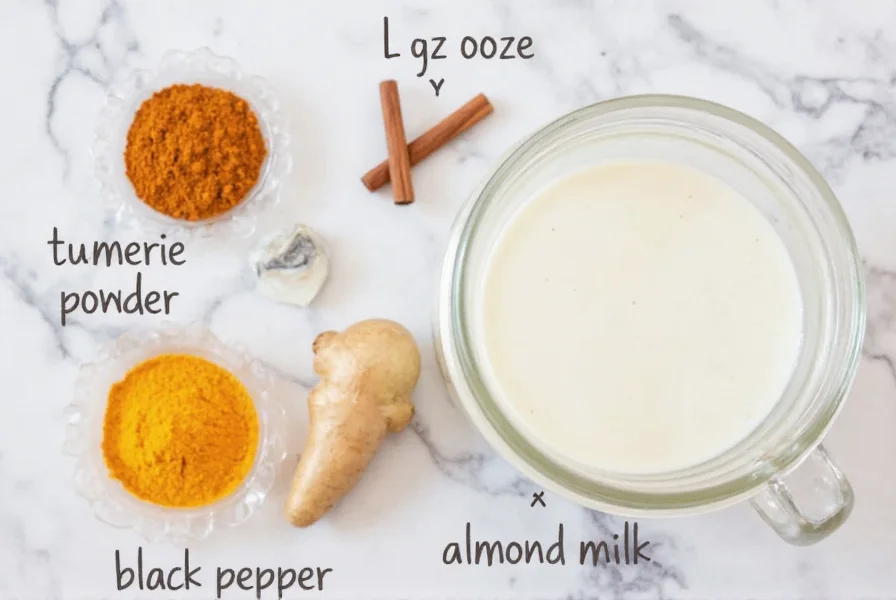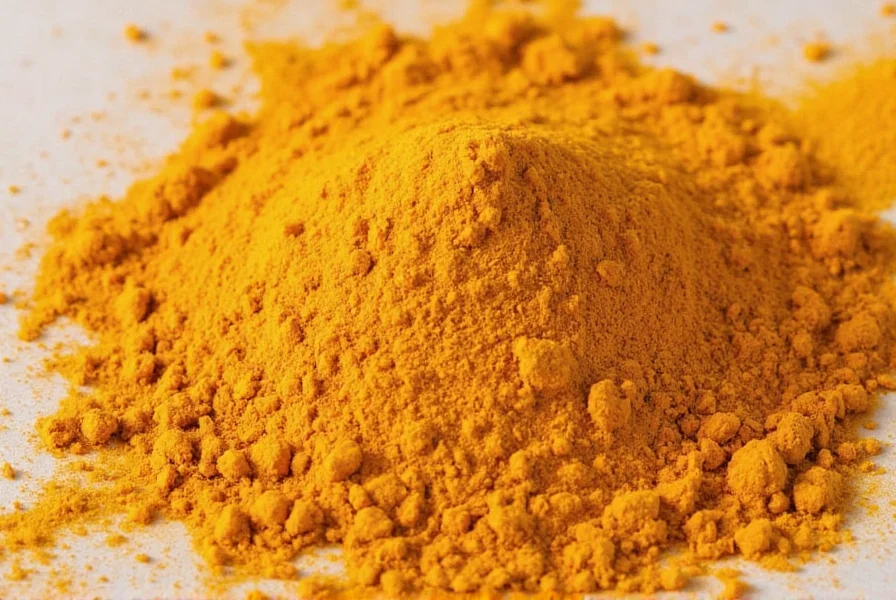Turmeric powder, derived from the Curcuma longa plant's rhizomes, has been used for centuries in traditional medicine systems like Ayurveda. Modern science has begun validating many of these traditional uses, revealing how this vibrant yellow spice interacts with human physiology. As interest in natural health solutions grows, understanding exactly what turmeric powder does for your body becomes increasingly important for making informed decisions about your wellness routine.
The Science Behind Turmeric's Effects
Curcumin constitutes about 2-8% of turmeric powder by weight and serves as its primary bioactive compound. This polyphenol works through multiple biological pathways:
| Mechanism | Biological Effect | Research Status |
|---|---|---|
| NF-kB inhibition | Reduces inflammation at molecular level | Well-established in vitro and animal studies |
| Antioxidant enzyme stimulation | Boosts body's natural defense systems | Human clinical trials ongoing |
| Brain-derived neurotrophic factor (BDNF) increase | Supports neuron growth and cognitive function | Promising early human studies |
One significant challenge with turmeric powder is curcumin's poor bioavailability. When consumed alone, only a small percentage gets absorbed into the bloodstream. This explains why traditional preparations often combine turmeric with black pepper (which contains piperine) and fats—combinations that can increase curcumin absorption by up to 2,000%.

Key Health Benefits Supported by Research
1. Inflammation Reduction
Chronic inflammation contributes to numerous health conditions. Curcumin's anti-inflammatory effects compare favorably with some anti-inflammatory drugs, but without the same side effect profile. A comprehensive review published in Journal of Medicinal Food concluded that curcumin supplementation significantly reduced inflammatory markers like C-reactive protein in multiple clinical trials. This makes turmeric powder particularly relevant for what does turmeric powder do for your body regarding inflammatory conditions.
2. Joint Health Support
Several studies demonstrate turmeric powder's effectiveness for joint pain relief. Research in the Journal of Alternative and Complementary Medicine found that 1,000 mg of curcumin daily provided similar pain relief for osteoarthritis as 1,200 mg of ibuprofen, but with fewer gastrointestinal side effects. This positions turmeric as a valuable option for those seeking natural approaches to joint health.
3. Antioxidant Protection
Turmeric powder boosts the body's antioxidant defenses through two mechanisms: directly neutralizing free radicals and stimulating the body's own antioxidant enzymes. This dual action helps protect cells from oxidative damage, which contributes to aging and many chronic diseases. Understanding how does turmeric powder reduce inflammation reveals its connection to oxidative stress pathways.
4. Cognitive Function Enhancement
Emerging research suggests curcumin may support brain health by increasing levels of brain-derived neurotrophic factor (BDNF), a growth hormone that functions in the brain. Low BDNF levels associate with depression and Alzheimer's disease. While more human studies are needed, preliminary findings indicate potential cognitive benefits from regular turmeric consumption.
Practical Considerations for Using Turmeric Powder
Optimal Consumption Methods
To maximize what turmeric powder does for your body, consider these evidence-based approaches:
- Combine with black pepper: Piperine in black pepper increases curcumin absorption by up to 2,000%
- Consume with healthy fats: Curcumin is fat-soluble, so pair with coconut oil, olive oil, or avocado
- Heat gently: Light cooking enhances curcumin's solubility without degrading it
- Aim for 500-2,000 mg daily: This range appears effective for most health benefits
Who Should Exercise Caution
While turmeric powder benefits many people, certain individuals should consult healthcare providers before regular use:
- Those taking blood thinners (curcumin may enhance anticoagulant effects)
- People with gallbladder issues (turmeric may stimulate bile production)
- Individuals scheduled for surgery (discontinue 2 weeks prior)
- Pregnant women beyond normal culinary use

Realistic Expectations for Turmeric Benefits
Despite popular claims, turmeric powder isn't a miracle cure. The research shows modest but meaningful benefits, particularly for inflammation and joint health. Understanding does turmeric powder help with arthritis requires recognizing it works best as part of a comprehensive approach rather than a standalone solution. Most studies showing significant effects used standardized curcumin extracts at doses difficult to achieve through culinary turmeric alone.
For general wellness, incorporating 1-3 grams of turmeric powder daily into your diet represents a safe and potentially beneficial practice. Those seeking therapeutic effects for specific conditions may require higher doses or standardized extracts under professional guidance. This addresses the practical question of how much turmeric powder should I take daily for optimal results.
Conclusion
Turmeric powder offers several science-supported benefits for the body, primarily through its anti-inflammatory and antioxidant properties. While not a cure-all, regular consumption as part of a balanced diet can contribute to better overall health, particularly for inflammation management and joint support. The key to maximizing what turmeric powder does for your body lies in proper preparation techniques that enhance curcumin absorption and realistic expectations about its effects. As with any supplement, consult your healthcare provider before making significant changes to your wellness routine, especially if managing health conditions or taking medications.
What are the most scientifically supported benefits of turmeric powder?
The most scientifically supported benefits include reducing inflammation, supporting joint health, and providing antioxidant protection. Multiple clinical trials demonstrate turmeric powder's effectiveness for reducing inflammatory markers and alleviating joint pain, particularly in osteoarthritis. Its antioxidant effects work through both direct free radical neutralization and stimulation of the body's natural antioxidant enzymes.
How long does it take to feel the effects of turmeric powder?
Most people notice subtle effects within 2-4 weeks of consistent daily use at appropriate doses (typically 500-2,000 mg of curcumin). Significant anti-inflammatory effects often become noticeable after 4-8 weeks. The timeframe varies based on individual factors like metabolism, health status, and whether turmeric is consumed with absorption enhancers like black pepper and healthy fats.
Can I get enough curcumin from cooking with turmeric powder?
Regular culinary use provides health benefits but likely falls short of therapeutic doses used in most clinical studies. One teaspoon of turmeric powder contains approximately 200 mg of curcumin, while studies showing significant effects typically use 500-2,000 mg daily. For general wellness, cooking with turmeric is beneficial; for specific health concerns, higher doses through supplements may be necessary under professional guidance.
Does turmeric powder interact with medications?
Yes, turmeric powder can interact with certain medications. It may enhance the effects of blood thinners like warfarin, increase stomach acid reducers' effectiveness, and potentially interact with diabetes medications by lowering blood sugar further. If taking prescription medications, especially blood thinners, consult your healthcare provider before consuming turmeric powder regularly or in high doses.
What's the best time of day to take turmeric powder?
The best time to take turmeric powder is with meals, particularly those containing healthy fats, to maximize absorption. Dividing the daily dose between morning and evening meals may provide more consistent blood levels. Some people prefer taking it with breakfast to support daytime inflammation management, while others take it with dinner for overnight recovery benefits. Consistency matters more than specific timing.











 浙公网安备
33010002000092号
浙公网安备
33010002000092号 浙B2-20120091-4
浙B2-20120091-4